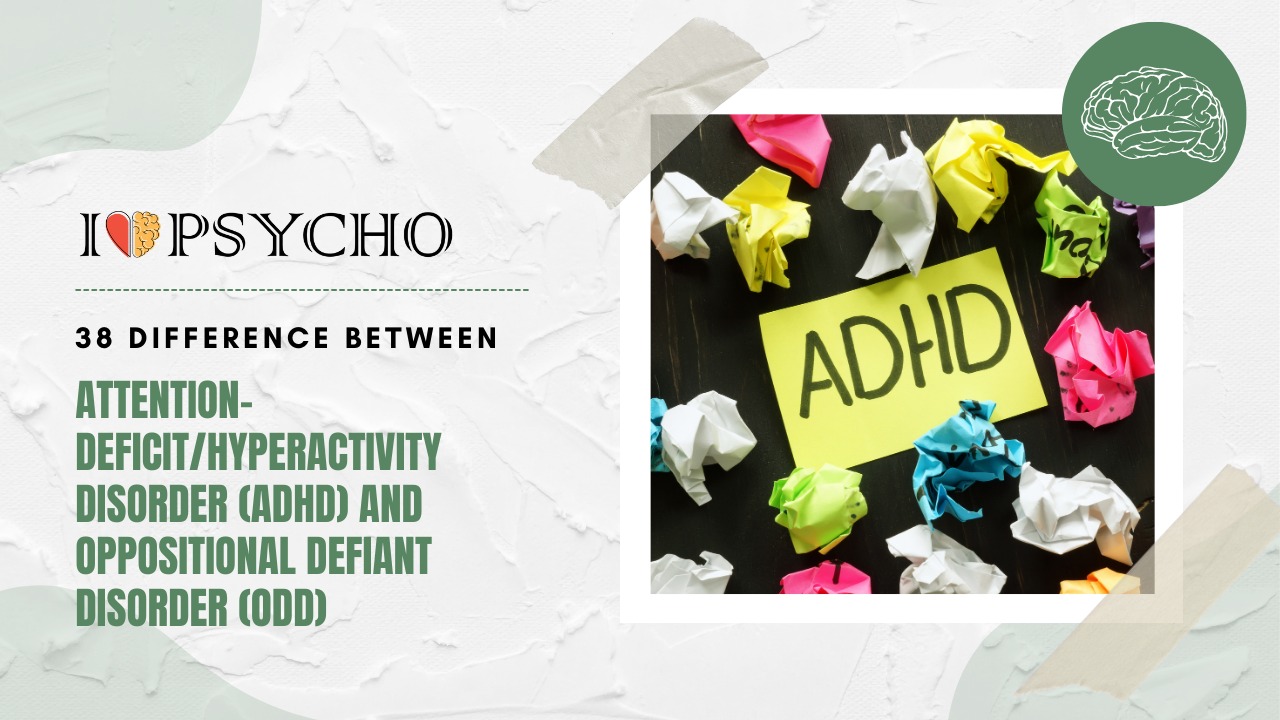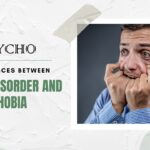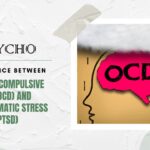Both ADHD and ODD are neurodevelopmental diseases that can impair a child’s behavior, feelings, and relationships. Despite their similarities, their symptoms causes, and treatments are distinct.
ADHD is characterized by inattention, hyperactivity, and impulsivity. ADHDers may struggle to focus, plan, and follow instructions. They may be restless and unable to sit. Impulsivity can speed up decision-making and interrupt conversations. ADHD can be caused by heredity, brain chemistry abnormalities, and environment. To control symptoms and enhance adjustment, behavioral therapy, medication, and education are typically used.
Defiant, argumentative, and hostile conduct toward authority persons is typical of ODD. ODD kids don’t follow norms and cause problems at home, school, and elsewhere. Unlike ADHD, which largely affects how individuals think and pay attention, ODD mostly impacts how people interact and regulate their emotions. ODD can be triggered by inconsistent punishment, family discord, and prior mistreatment. ODD symptoms are treated with psychotherapy, family therapy, and behavior management.
Some people have both ADHD and ODD. It’s crucial to properly diagnose and address the issue. Self-control issues, emotional breakdowns, and poor social interactions are shared by both groups. ODD is more about arguing and being stubborn, whereas ADHD is more about having difficulties paying attention and not acting on urges.
Children with both disorders are fully assessed by mental health professionals, taking into consideration how they behave in different settings. To avoid misdiagnosing ADHD as ODD or vice versa, differential identification is crucial.
ADHD and ODD have similar behavioral symptoms and sometimes occur concurrently, but they are separate disorders with different origins, indicators, and treatments. ODD is obstinate and nasty, while ADHD is largely about attention, restlessness, and impulses. For children and teenagers with these disorders to succeed in school, with friends, and psychologically, they require proper diagnostic and individualized therapy.
Also Read:Intellectual Disabilities: Symptoms, Causes and Treatment
|
S.No. |
Aspect |
Attention-Deficit/Hyperactivity Disorder (ADHD) |
Oppositional Defiant Disorder (ODD) |
|
1. |
Core Symptoms |
Inattention, hyperactivity, impulsivity |
Defiance, hostility, disobedience |
|
2. |
Behavioral Characteristics |
Impulsiveness, poor attention control |
Defiance, argumentativeness, irritability |
|
3. |
Hyperactivity |
Often restless, excessive movement |
Restless or fidgety behavior |
|
4. |
Impulsivity |
Difficulty in controlling impulses |
Impulsive or reactive behavior |
|
5. |
Inattention |
Difficulty sustaining focus on tasks |
Difficulty staying attentive in tasks |
|
6. |
Oppositional Behaviors |
Can occur but not defining feature |
Central to diagnosis |
|
7. |
Defiance and Disobedience |
Not a core symptom |
Core symptoms of ODD |
|
8. |
Age of Onset |
Typically diagnosed in childhood or adolescence |
Usually diagnosed in childhood |
|
9. |
Interference with Daily Life |
Interferes with academics, work, relationships |
Impacts family, school, social function |
|
10. |
Emotional Regulation |
Often struggles with emotional regulation |
Emotional dysregulation, temper outbursts |
|
11. |
Cooperation with Authority |
May struggle but not central |
Often resists authority figures |
|
12. |
Aggressive Behaviors |
Can be seen, especially in hyperactivity |
Defiance often more verbal than physical |
|
13. |
Cognitive Impulsivity |
Rapid decisions without considering outcomes |
Impulsive decision-making |
|
14. |
Defiant Behavior |
Not a primary feature |
Central aspect of diagnosis |
|
15. |
Opposition to Instructions |
May occur due to impulsivity |
Regular opposition to rules |
|
16. |
Hyperactive-Impulsive Presentation |
Hyperactivity and impulsivity prominent |
Defiance and irritability more prominent |
|
17. |
Inattentive Presentation |
Inattention and disorganization are key |
Less relevant in ODD diagnosis |
|
18. |
Emotional Outbursts |
Can occur due to impulsivity |
Often seen in response to frustration |
|
19. |
Medication Treatment |
Stimulant medications often used |
Not primarily treated with medication |
|
20. |
Cognitive Symptoms |
Difficulty in sustaining attention |
Often present in attention and memory |
|
21. |
Aggressive vs. Inattentive |
Not exclusive to either type |
Aggressive behavior central to diagnosis |
|
22. |
Parent-Child Relationship |
May have struggles, but not the primary focus |
Parent-child conflict is a central issue |
|
23. |
Role of Environmental Factors |
Genetic and environmental influences |
Environmental factors play a role |
|
24. |
Hyperactivity vs. Defiance |
Hyperactivity and impulsivity are core |
Defiance and opposition are central |
|
25. |
Aggression vs. Impulsivity |
Both can be present, but different |
Impulsivity may lead to defiance |
|
26. |
Comorbid Disorders |
Commonly coexists with other disorders |
Often coexists with other disorders |
|
27. |
Temperament and Personality |
Impulsivity may influence personality |
Oppositional traits central to diagnosis |
|
28. |
Treatment Approaches |
Behavioral therapy, family intervention |
|
|
29. |
Peer Relationships |
Struggles in maintaining positive relationships |
Conflicts with peers common |
|
30. |
Cognitive Flexibility |
May struggle with switching tasks |
Often rigid thinking patterns |
|
31. |
Self-Regulation |
Often challenges in self-control |
Difficulty in regulating emotions |
|
32. |
Core Features |
Inattention, impulsivity, hyperactivity |
Defiance, irritability, negative behavior |
|
33. |
Peer Rejection |
May experience due to impulsivity |
May experience due to oppositionality |
|
34. |
Self-Monitoring |
Difficulties in monitoring own behavior |
Often resists self-monitoring |
|
35. |
Medication Response |
Stimulant medications can improve focus |
Not typically treated primarily with meds |
|
36. |
Impact on Learning |
Can lead to academic challenges |
Can impact academic and social function |
|
37. |
Emotional Reactivity |
Often reactive and quick to emotions |
Emotional reactivity is a core feature |
|
38. |
Diagnosis |
Focus on inattention, impulsivity, hyperactivity |
Focus on defiant, hostile behavior |
Also Read: An Introduction to Consciousness: Its History and Theories
Frequently Asked Questions (FAQs)
Q.1 What is the main difference between ADHD and ODD?
Attention, hyperactivity, and impulse control are symptoms of ADHD. ADHD sufferers struggle with impulsivity, restlessness, and attention. ODD, on the other side, entails chronic defiance and hostility toward authority officials, including disagreements and fury.
Q.2 Can a person have both ADHD and ODD?
It’s possible to have ADHD and ODD. Some symptoms, such as impulse control, and emotional management, overlap with the diseases. Diagnosing and treating co-occurring ADHD and ODD can be difficult.
Q.3 How are ADHD and ODD diagnosed?
ADHD and ODD are usually diagnosed by mental health professionals. Medical history, behavior observations, and rating scales may be used to assess ADHD. Defiance frequency and severity are used to diagnose ODD.
Q.4 What are the treatment options for ADHD and ODD?
ADHD treatment frequently includes behavioral counseling and medication. Attention, organization, and impulse control are the goals of behavioral therapies. To correct neurotransmitter imbalances, stimulants or non-stimulants may be administered. To improve emotional control and social skills, ODD treatment includes psychotherapy, especially CBT. ODD may be managed through parent training and family counseling.
Q.5 Can ADHD or ODD be outgrown over time?
If untreated, ADHD and ODD are chronic and can last until adulthood. Early intervention and proper care can greatly improve symptoms and functioning, decreasing the effect of these illnesses on everyday life.









